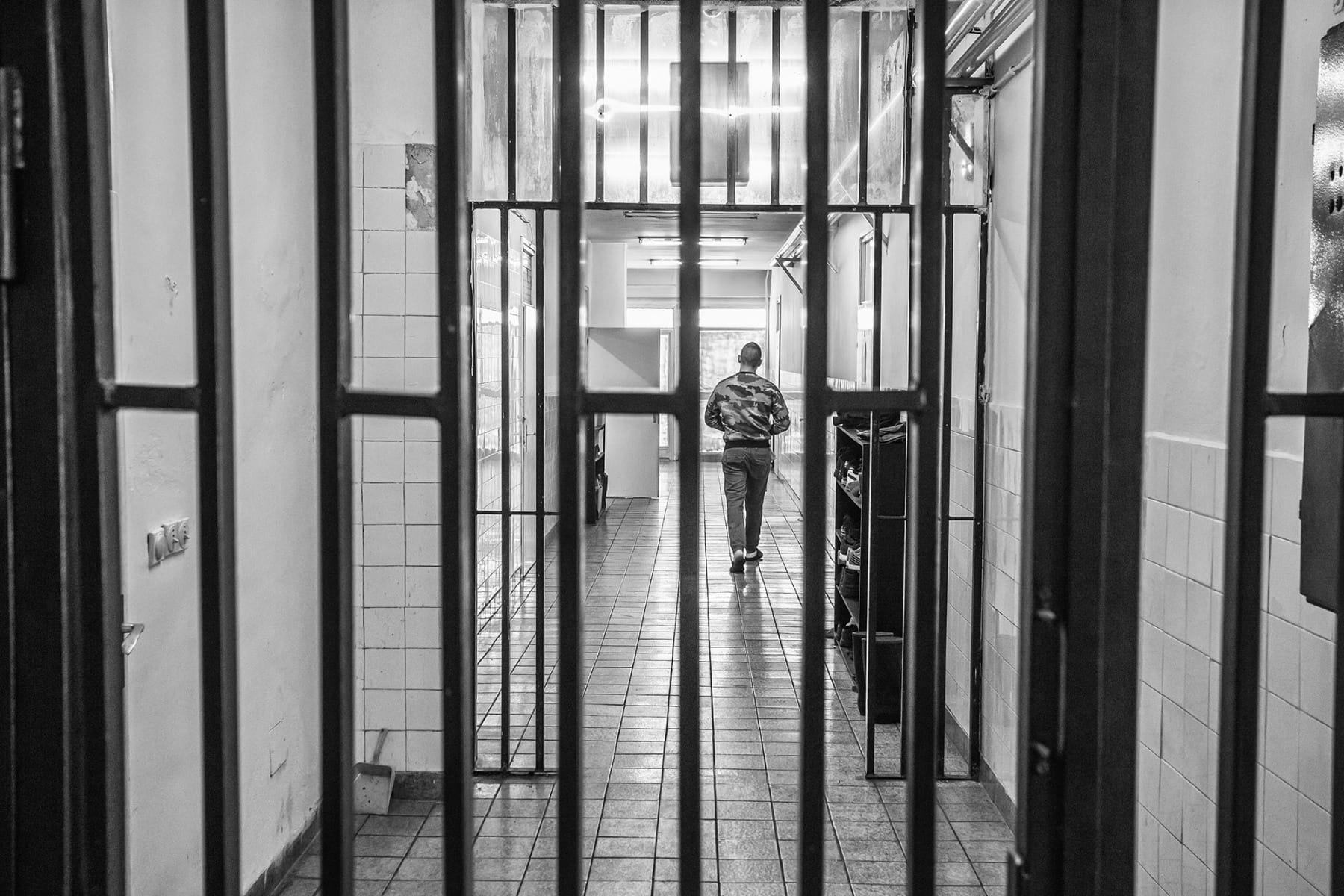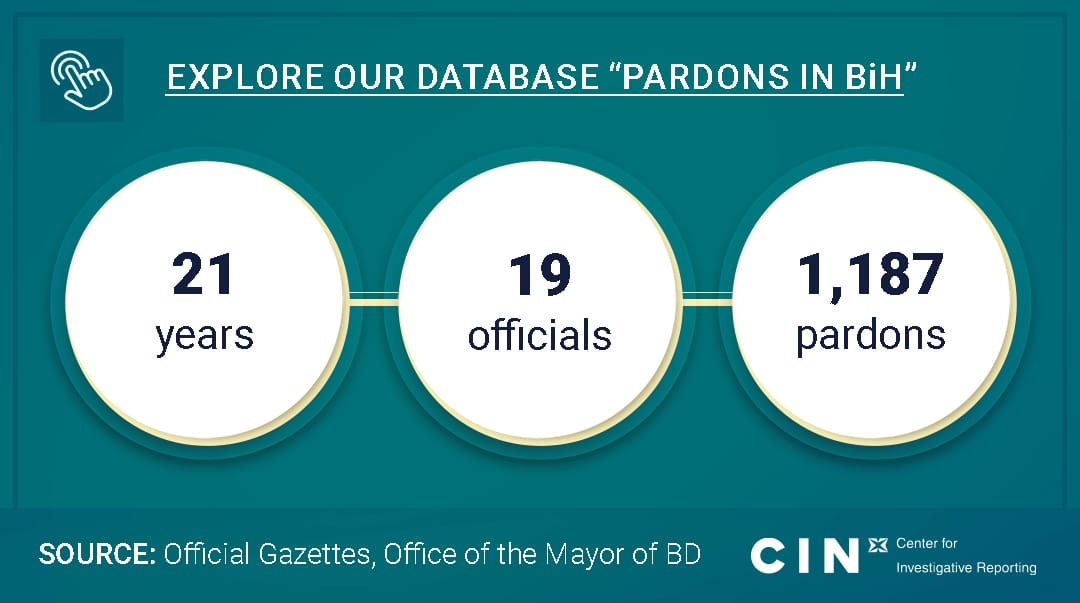The former Prime Minister of the Federation of Bosnia and Herzegovina (FBiH), Fadil Novalić, requested a pardon not because he wanted clemency, but to have a formal reason to delay serving his four-year prison sentence.
This is according to his lawyer, Elmir Jahić, who explained that the pardon application was withdrawn after the Court of Bosnia and Herzegovina denied the postponement of the sentence and sent Novalić to prison in 2024.
The authority to grant pardons in Bosnia and Herzegovina lies with the Presidency, the presidents of the Federation of Bosnia and Herzegovina (FBiH) and Republika Srpska, and the mayor of the Brčko District. They can release convicts, reduce their sentences, or expunge their verdicts.
They can pardon anyone, except those convicted of war crimes and crimes against humanity, genocide, and terrorism, without having to explain their decisions.
Unlike Novalić, other convicts who submitted pardon petitions did not withdraw them, resulting in a total of 1,187 pardons granted between 2003 and June 2024, averaging 59 per year. Among those pardoned are politicians, officials, civil servants, as well as fugitives and repeat offenders. The documents provide evidence indicating urgency, political influence, and bribery associated with the pardons.
Infographic: Željko Todorović (CIN)
Expunging the conviction of a former municipal councilor
In October 2023, FBiH President Lidija Bradara signed the expungement of the conviction from the criminal record of Jasna Babić, the director of the public utility company Vitkom in Vitez, and a colleague from the Croat Democratic Union of BiH (HDZBiH).
In 2022, Babić was convicted of document forgery at the Municipal Court in Travnik and fined 500 BAM because, in her 2019 application for the position of director, she wrote 2019 that she was not an elected official, even though she was a municipal councilor at the time. Then she certified the false statement. She thus cleared the path to becoming a director.
Babić claimed that she did not receive the pardon because of her party affiliation with Bradara and that she does not even know her personally. She declined to disclose the reason she cited for seeking clemency.
“None of your business. I didn’t address you with a request”, she told the CIN journalist.
Despite admitting her guilt, Babić maintains that she was unfairly convicted and asserts that she has “the same right to a pardon as anyone else”.
FBiH President Lidija Bradara declined to comment on the pardons she granted. From October 2023 to March 2024, she pardoned eight convicts and rejected 54 applications.
The collected data indicate that officials rarely approve the expungement of verdicts. Over two decades, 48 individuals received this pardon, including former civil servants, officials, and politicians.
It was because of the politicians that the OHR suspended “the act of clemency” in 2005. This decision came after FBiH Prime Minister Niko Lozančić pardoned former FBiH Defense Minister Miroslav Prca, who had been convicted of abuse of office for unauthorized handling of funds allocated to the Croat Defense Council. Prca’s original five-year prison sentence was reduced by one year.
He now lives in Croatia. He has a private business and says he is not involved in politics. “I wouldn’t go back to that time. I definitely wouldn’t go back, and I have nothing to say about it. It was all in accordance with the law”, Prce told CIN.
He was a member of HDZBiH, and the case attracted considerable public attention at the time. Lozančić acknowledged that it was a sensitive matter and described his decision to pardon his party colleague as “somewhat uncomfortable”.
He asserts that, like with other decisions, he had the vice president’s consent for this one as well. “I received the proposal from one vice president, and again from a different vice president. I kept it in a drawer for 15 days, contemplating whether to proceed despite the valid reasons, but I was fully aware that there would be a significant public reaction.”
Lozančić asserts that he did not sign the decision at the party’s behest, nor did he grant pardons due to any urgency.
Under the then Law on Pardons of the FBiH, Lozančić signed 460 decisions from July 2003 to July 2005. Among these, as many as 68 individuals were pardoned multiple times for the same crime, some receiving a second, third, or even fourth pardon. He claims that he doesn’t even remember the numbers and that he acted solely to rehabilitate convicts, emphasizing that he neither accepted money for pardons nor gained any personal benefit:
“I believe I acted justly, adhering to principles of justice. I may have made mistakes unintentionally.”

Urgency for pardon
Court documents reveal that during Živko Budimir’s tenure as FBiH President, there were incidents of urgency and bribery related to pardons.
Meetings in pubs, agreements, and money transactions were documented on the orders of the state prosecutor’s office. In November 2013, indictments were filed against several individuals, including Budimir, his advisor Petar Barišić, the president of the cantonal board of the United Organization of Fighters and Veterans of the Army of Bosnia and Herzegovina in Sarajevo, Saud Kulosman, and Armin Kulovac.
Kulovac and Kulosman pleaded guilty to giving gifts and intermediary activities, leading to suspended prison sentences in 2016 and 2019 respectively.
According to judgments, Kulovac provided a 7,000 BAM advance payment to secure a pardon for his brother, Admir, who was serving a 2.5-year sentence for rape. Kulosman acted as a mediator for both Admir Karić, sentenced to six months for causing serious bodily harm and Admir Kulovac.
According to court documents, the funds were handed over to Budimir’s advisor Barišić in an attempt to influence pardon decisions that were ultimately not granted. He was arrested in April 2013 for illegal intermediation but fled shortly after being released. An arrest warrant has been issued for him, and is still active, thus delaying the conclusion of the trial.
The Municipal Court in Sarajevo acquitted the former FBiH President Budimir of charges of abuse of position or authority and receiving gifts in 2019, explaining that the pardons did not occur and that there was no evidence proving Budimir acted under urgency.
He is not politically active today and sets conditions for interviews that CIN cannot accommodate: “The only way I agree to talk, not only about this but any topic, is directly and live. I no longer agree to any more statements that will be cut and edited.”
Budimir pardoned 247 convicts, including murderers, drug dealers, fraudsters, and individuals from warrants, without the mandatory consultation with the vice presidents.
Some of them later reoffended.

Pardon for a Courier of the Brčko District Prosecutor’s Office
In Brčko, the pardon decision is made by the mayor upon the recommendation of the Judicial Commission, which functions similarly to the Ministry of Justice. This commission is comprised of the chief prosecutor, the president of the court in the Brčko District, the attorney general, the director of the Legal Aid Office, and three citizens.
“So, formally and legally, it is the mayor who grants or signs the final pardon. However, since the establishment of the District, there has never been an instance where the mayor altered any recommendation that came from the Judicial Commission”, explained the former mayor of Brčko, Esed Kadrić.
During his term in office in September 2022, he signed only one pardon, which was the expungement of the verdict to Goran Peštić. Two years earlier, Peštić had been sentenced to a three-month prison term for falsifying a document.
“I really don’t know, I’m hearing this from you. I can’t remember who it is”, says former mayor Kadrić.
Peštić was the only one among the 13 pardoned in the Brčko District whose conviction was expunged, meaning that he is no longer formally considered to have a criminal record.
The other convicts, among whom convicted murderers, robbers, and drug traffickers, had their prison terms reduced by a maximum of six months.
Today, Peštić works at the BD Prosecutor’s Office as a driver and courier. In a brief conversation, he stated that he obtained the pardon through the standard process and that, according to the law, he is eligible to request the expungement of the conviction. When asked by a journalist if someone urged on his behalf or gave money for a pardon, he said: “Madam, you are exaggerating” and ended the conversation.
Over two decades, the presidents of the Republika Srpska granted a total of 312 pardons: Dragan Čavić granted 179, Rajko Kuzmanović 60, Milan Jelić 44, while Milorad Dodik 27 and Željka Cvijanović 2.
They expunged convictions, reduced prison sentences, or replaced them with suspended sentences for the convicts. In nearly half of the decisions, the reasons for the convictions were not even written, but for those cases where this information exists, they involve various criminal acts: from abuse of position, document forgery, endangerment of traffic, causing serious injuries, domestic violence, to murder.
Among those pardoned was Darko Elez, to whom the then President of RS Dragan Čavić pardoned one year of imprisonment in early 2005. Elez was then sentenced to five years and eight months in prison for murder. In the meantime, he was reconvicted to 15 years in prison for organized crime related to murders, attempted murders, and other criminal offenses committed by Elez after being pardoned.
Among the pardoned were also the notary from Istočno Sarajevo Samojko Đorda, who was sentenced to a fine of 2,000 BAM for abuse of position committed while he was the president of the Basic Court in Sokolac and Dado Dogan, briefly the Minister for Family, Youth, and Sports of RS, who was sentenced to one year in prison for reckless driving.
Their convictions were expunged by the decisions of Rajko Kuzmanović and Željka Cvijanović, which represents the highest level of pardon available to officials.
The presidents of Republika Srpska have issued this type of pardon 29 times, for cases involving sentences of up to one year in prison and fines not exceeding three thousand marks.








